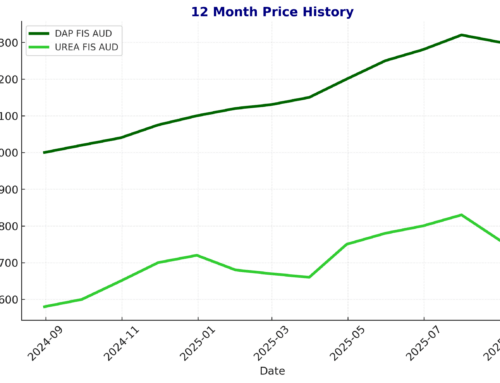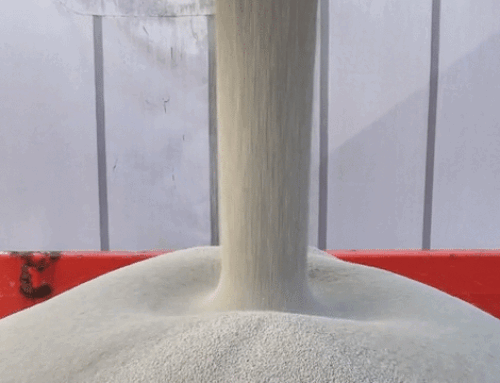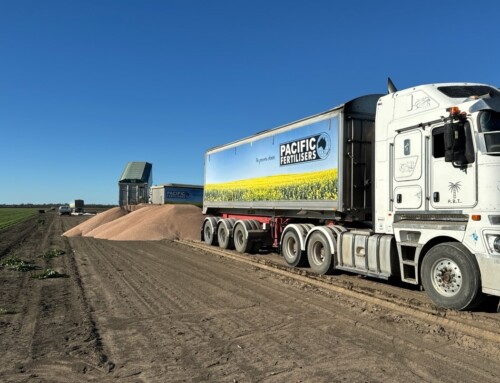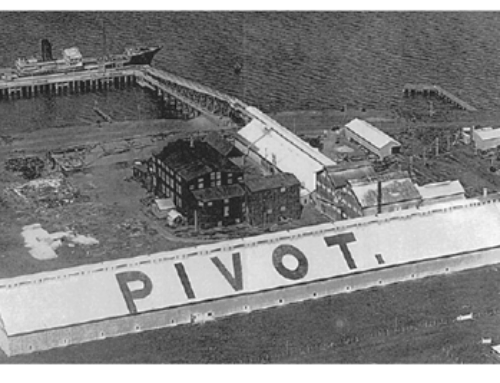We recently have undertaken a large study to bench mark different gypsum products from different mines and processing plants to ascertain their quality in a 3rd party laboratory. See the results from the study where we used a NSW Ag Facts method to test gypsum solubility. Study link http://pacificfertiliser.com/gypsum-comparison-results/846/. We also have a free Gypsum Cost Comparison spreadsheet we can send you, which can assist you to compare your various gypsum quotes from various suppliers in an apples with apples scenario.
For many reasons gypsum can be considered to be a farmer’s best friend. Gypsum or CaSO4.2H20 is an excellent source of both Calcium and Sulphur which are essential for both yield and grain quality. However gypsum benefits go much further. As a soil amendment it helps improve the physical properties of soil, such as water retention, permeability, water infiltration, drainage, aeration and structure providing a better environment for the plant roots. The calcium can also displace harmful sodium in the soil, essential to the sustainability of most irrigated soils.
Agricultural gypsum products can come in many forms like:
- Natural Gypsum – Mined
- Recycled from plasterboard – Super Ag Gypsum
- Flue Gas scrubbing on power stations – FGD Gypsum
- By-product of Fertiliser manufacture – Phospho Gypsum (from the old super plants – not available anymore)
All of these variants of CaSO4.2H20 have calcium as calcium and sulphur as sulphate. When comparing any gypsum products you should consider the following items. Gypsum Purity (% of CaSO4.2H20), calcium and/or sulphur content depending on requirements, Solubility, Salts, Heavy metals (such as lead or cadmium), Contaminants (such as paper).










